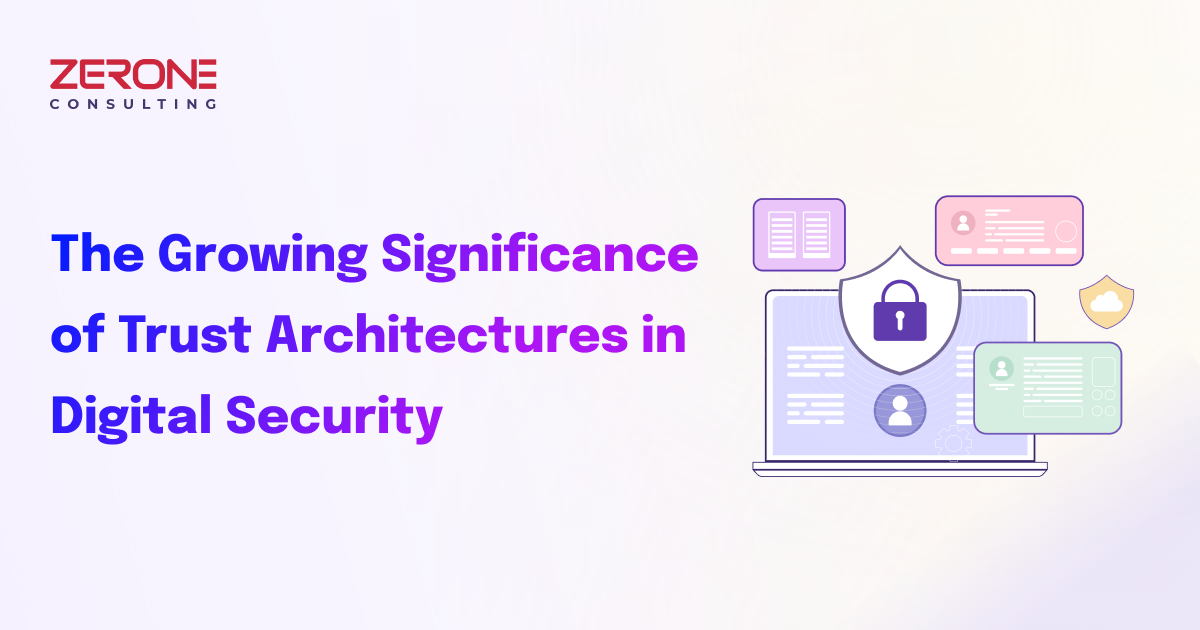The Growing Significance of Trust Architectures in Digital Security
In the rapidly evolving digital landscape, the significance of robust trust architectures in ensuring security is more paramount than ever. With the surge of digital transformations, cybersecurity threats have become sophisticated, necessitating advanced trust architectures to safeguard data integrity, confidentiality, and availability. This article delves into the importance of trust architectures, providing industry leaders with advanced insights, latest facts, stats, future predictions, and real-world case scenarios.

Understanding Trust Architectures
Trust architectures are frameworks or models that enable secure and reliable operations between parties in a digital environment. They encompass technologies and protocols ensuring that all entities, devices, and users within a system can be reliably verified and that their interactions are secure. Trust architectures are foundational to digital security, supporting mechanisms such as identity verification, encryption, secure boot, and remote attestation.

The Necessity in Today's Digital Ecosystem
As businesses undergo digital transformations, the complexity of cyber threats has escalated. Trust architectures are not just a necessity but a strategic imperative. They are critical in mitigating risks associated with digital transactions, cloud computing, IoT devices, and more. A robust trust architecture ensures that devices are authenticated, data is encrypted, and all communications are secure, thereby maintaining the integrity and confidentiality of digital assets.
Advanced Insights: Moving Beyond Traditional Security
Traditional security measures are becoming obsolete in the face of advanced persistent threats. Trust architectures incorporate next-generation technologies like blockchain, advanced encryption standards, and AI-driven security protocols. They are designed to be adaptable and resilient against evolving threats. For instance, Zero Trust Architecture (ZTA) has emerged as a paradigm shift in security, operating on the principle that no entity inside or outside the network is trusted by default.

Latest Interesting Facts and Stats
-
The global cybersecurity market is expected to reach $345.4 billion by 2026, with a significant portion invested in trust architectures (MarketsandMarkets).
-
Implementations of Zero Trust models have seen an increase, with over 60% of organizations considering or adopting this architecture post-2020 (Cybersecurity Insiders).
-
Trust as a Service (TaaS) is gaining traction, offering trust management solutions on a subscription basis.
Future Predictions: Shaping the Horizon of Digital Security
-
AI and Machine Learning Integration: Trust architectures will increasingly incorporate AI and ML for predictive security measures, anomaly detection, and automated threat response.
-
Quantum-Resistant Cryptography: As quantum computing emerges, developing quantum-resistant cryptographic methods will become a focal point in trust architectures.
-
Decentralized Identity Systems: The future will see a rise in blockchain-based identity verification systems, offering more control and security to users over their digital identities.
Real-World Case Scenarios
-
Financial Services: Banks and financial institutions employ trust architectures to secure transactions, protect customer data, and comply with stringent regulatory requirements. For instance, multi-factor authentication and encryption are standard practices for securing online transactions.
-
Healthcare: Patient data protection is critical. Trust architectures in healthcare ensure that patient records are only accessible by authorized personnel, with strict audit trails and data encryption in place.
-
Smart Cities: As cities become smarter, trust architectures are fundamental in securing communication between IoT devices and services, ensuring data integrity and privacy in urban digital infrastructures.
Conclusion
The growing significance of trust architectures in digital security is undeniable. As digital threats evolve, so must the strategies to combat them. Trust architectures provide a comprehensive framework to safeguard against these threats, ensuring the confidentiality, integrity, and availability of digital assets. By staying abreast of the latest developments and integrating robust trust architectures, organizations can not only protect themselves but also gain a competitive edge in the digital realm.
We can help!
Why Scrum Fits Like A Glove
#Customapplicationdevelopment
Mvps - A Silver Bullet In Software Development
#Customapplicationdevelopment



